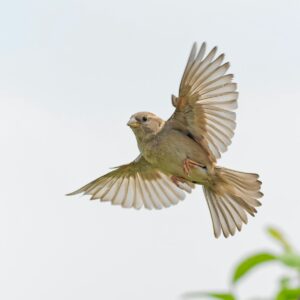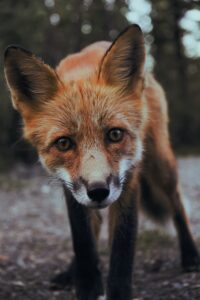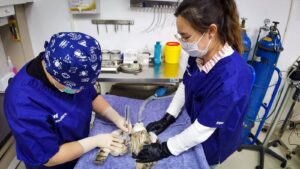
Some of you might have wondered: “Is it really that bad to touch a wild animal? I mean, if a bird just bumped into my window, surely I can help, right?” You know, the kind of moment when you see a little squirrel looking at you with those big, innocent eyes, and you just have to give it a pat. But here’s the thing—what we think is a kind gesture might actually be doing more harm than good. In this post, let’s dive into why touching wild animals, even with the best intentions, could be more of a problem than you think. Spoiler alert: it’s all about that pesky human scent!
Why shouldn’t we touch wild animals?
Okay, so we all know the instinct to help a bird that just flew into a window or the tiny squirrel staring at you like it’s plotting something cute. But here’s the thing: touching wild animals, even with the best intentions, can cause a bit of a ruckus in their world. One of the main reasons is that animals rely heavily on scent to identify each other, especially in social species like primates, birds, and even some mammals. When humans touch them, our scent rubs off on them, and their fellow animals might get a little confused or even wary. Imagine one of your friends coming back to the group after touching a stranger, and everyone’s like, “Uh, who’s that?!” In the wild, this can lead to exclusion, and that’s not just a small social problem—it could affect the animal’s survival or ability to find food and mates.
How long does our scent stick around?
Now, if you’re thinking, “Okay, but how long does my human scent actually linger on them?” Well, it depends! Animals’ fur and skin can hold on to scents for several hours, maybe even a couple of days in some cases. It’s like when you pet your dog and end up smelling like them for a while—it’s hard to shake that off! In wild animals, environmental factors come into play too. If it’s a warm, humid day, their scent could stay longer. On a cooler, dry day, it might dissipate faster. But it’s not just about time; it’s about how strong the scent is. If the animal was handled, like you picked up that bird (guilty, right?), the scent’s likely to last a bit longer, and that could have more noticeable consequences on its behavior.
Can they go back to normal once the scent’s gone?
Now, here’s where it gets a little tricky. Can the animal “live as before” once the scent is gone? The answer isn’t always simple. In some cases, yes, the animal could bounce back and rejoin its group or resume its usual behaviors. But for social species, the disruption might stick around a bit longer. If the animal has been rejected by its peers or has experienced confusion within its group due to the scent, it might have a tough time reintegrating. Some animals are highly sensitive to unfamiliar smells, and this could mean a longer recovery time. It’s like being the new kid at school—you might not be accepted right away, and it could take a while for things to feel “normal” again.
So, does this mean I should never touch wild animals?
I know, I know—it’s hard to resist helping a cute, helpless animal. But really, the best way to help is by not touching them at all. It’s not just about the scent; it’s also about protecting their natural behaviors. When we touch or interact with wild animals, we can cause stress, interfere with their ability to find food, or disrupt their natural instincts. The best thing we can do is admire them from afar. If you see a bird that bumped into a window, it’s much safer to let it recover on its own or, if necessary, gently place it in a safe spot without handling it. Wild animals are experts at taking care of themselves, and they don’t need our “help” in the way we think they do.
What if the animal seems injured or in danger?
You might be wondering, “Okay, but what if the animal is really in trouble?” Great question! If you encounter an animal that’s injured, the best thing to do is to contact a local wildlife rehabilitator or animal rescue. These professionals are trained to care for wild animals without causing them harm or disrupting their natural behaviors. It’s also much safer for you, as many wild animals carry diseases we’re not equipped to deal with. So, while it’s tempting to play the hero, it’s better to leave the rescue work to those who know what they’re doing!
Can animals really tell it’s a human scent?
Another interesting question that pops up is whether animals can even distinguish human scent from others. Turns out, yes! Many animals have an incredibly sensitive sense of smell, much better than ours. They can definitely tell the difference between the scent of a human and that of another animal. In some cases, this could even trigger a fear response, especially in animals like deer or bears, which associate human scent with danger. So, if you’re out in the wild and spot a curious deer, don’t approach—it knows you’re there, even if it doesn’t run away immediately.
So, the next time you spot a wild animal up close, remember: as much as you might want to help, it’s best to keep your distance. Wild animals have their own way of doing things, and our human scent can cause more trouble than we realize. Whether it’s causing social confusion or interrupting natural behaviors, our good intentions might unintentionally do more harm. By admiring wildlife from afar and leaving rescue to the experts, we can help keep them safe, healthy, and living their best wild lives. After all, nature’s got it covered—no need for a “wildlife superhero” moment from us!



